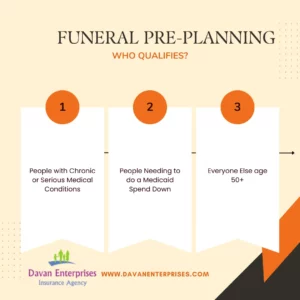Medicare is a federal health insurance program that provides coverage to millions of Americans who are 65 years of age or older, as well as to certain younger individuals with disabilities. While it can be a valuable resource for helping to cover the cost of medical care, it’s important to be aware of some common mistakes that people make when it comes to Medicare. Here are a few mistakes you’ll want to avoid:
1. Not enrolling in Medicare when you’re first eligible. If you’re 65 or older, you’re generally eligible to enroll in Medicare. However, if you’re not receiving Social Security benefits at the time you become eligible for Medicare, you’ll need to actively enroll. If you don’t enroll during your initial enrollment period, you may be subject to late enrollment penalties which will be applied for your lifetime.
2. Not understanding the different parts of Medicare. Medicare is made up of four parts: Part A (hospital insurance), Part B (medical insurance), Part C (Medicare Advantage plans), and Part D (prescription drug coverage). It’s important to understand what each part covers and how they work together, as well as any out-of-pocket costs you may be responsible for.
3. Not reviewing your coverage each year. Medicare plans and coverage can change from year to year, so it’s important to review your coverage annually during the open enrollment period (October 15th to December 7th). This will ensure that you have the coverage you need and that you’re not paying for coverage you don’t need or want.
4. Not considering Medicare Advantage plans. Medicare Advantage plans are an alternative to Original Medicare (Parts A and B). These plans are offered by private insurance companies and typically include additional coverage, such as prescription drug coverage and additional benefits like vision, dental, and hearing. It’s worth considering a Medicare Advantage plan, as it may provide additional coverage at a lower cost.
5. Not understanding the cost of your prescription drugs. If you’re enrolled in Original Medicare, you’ll need to purchase a separate prescription drug plan (Part D). It’s important to understand the cost of your prescription drugs and how they’re covered under your plan. Make sure to review the plan’s list of covered drugs (known as a “formulary”) and understand any cost-sharing responsibilities you may have.
By avoiding these common mistakes, you can ensure that you have the coverage you need and that you’re not paying for unnecessary coverage or incurring unnecessary costs. If you have questions about your Medicare coverage, it’s always a good idea to speak with an independent licensed insurance agent.











